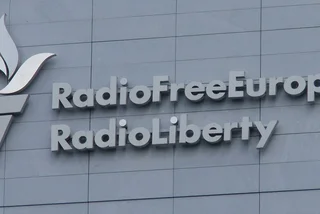The Czech Constitutional Court upheld a recent Supreme Court verdict that the Czech Labor Code protects foreign workers in Czechia even if their employment contract was concluded by mutual agreement under the law of another state.
The Constitutional Court rejected the constitutional complaint that the U.S.-based broadcaster Radio Free Europe/Radio Liberty (RFE/RL) filed against the Czech Supreme Court verdict.
PARTNER ARTICLE
RFE/RL contracts its employees under the laws of the United States, with specific reference to the laws applicable in Washington, D.C., where the broadcaster has its main office.
Last year, the Supreme Court concluded that in the event of termination of employment, an employee must not be deprived of the protection provided by the Czech Labor Code, despite the choice of applicable law stated in a contract.
Czech law has stricter rules covering termination
The case concerned a dispute over the termination of employment and the grounds for termination. Czech law imposes higher requirements for justifying termination than American law.
RFE/RL filed a constitutional complaint. "There is no reason why the termination of the employment status of an employee performing work in the Czech Republic, concluded between two foreigners, moreover in a situation where both persons, the employee, and the employer, are entities from the same country, should be considered under Czech law," the complaint said.
The Constitutional Court, though, upheld the Supreme Court verdict. "A reduction in the level of protection of fundamental rights and freedoms cannot be allowed even in a case with an international element," the court ruled.

Reasons for termination were too vague
The Czech judiciary previously dealt with the case of a foreigner who worked for Radio Farda, the Iranian affiliate of RFE/RL, in Prague. In 2019, he was fired for allegedly disrespecting his supervisor and sending mass emails. The radio saw this as a violation of company policy.
At the Prague 10 District Court, the man sought a declaration that the termination was invalid. He was initially unsuccessful with his lawsuit, but after an intervention of the appeals court, the District Court upheld the claim. It applied the Czech Labor Code and held that the notice of termination was very vague and general and that the mass e-mail in question could not be considered a serious enough breach of duty to justify termination of the employment.
The verdict was then upheld by the Municipal Court and the Supreme Court, which pointed out that American law allows an employer to give notice to an employee for any reason or even without giving a reason, thus providing the employee with a lower standard of protection in terminating the employment relationship.
Therefore, Czech law, which defines the grounds for termination and always requires them to be specified, must be applied in the case of work performed in the Czech Republic, the Supreme Court said.
RFE/RL broadcasts in 27 languages and 23 countries, according to the broadcaster’s website. It seeks to promote democratic values and human rights in countries where free media face restrictions or cannot operate at all.













 Reading time: 2 minutes
Reading time: 2 minutes 



























